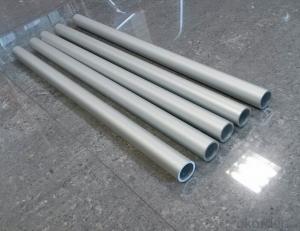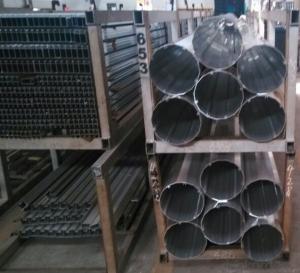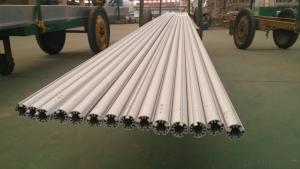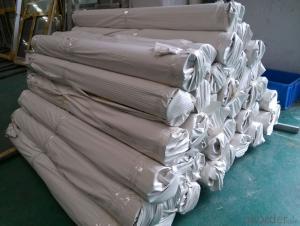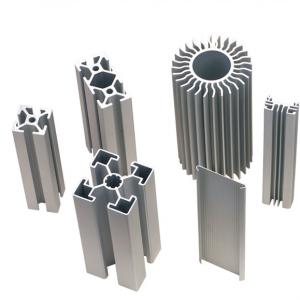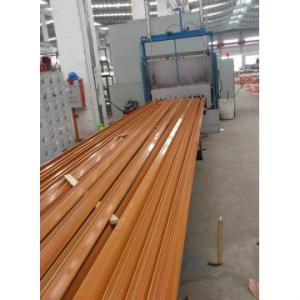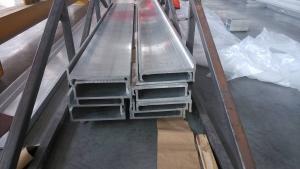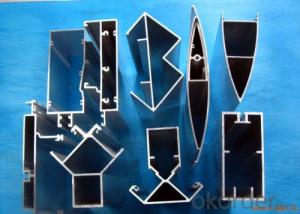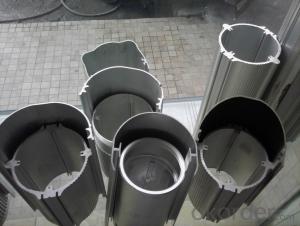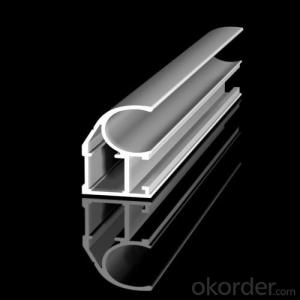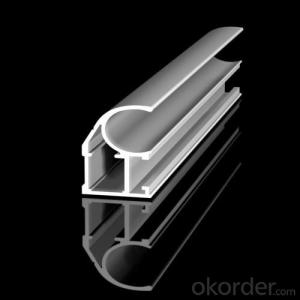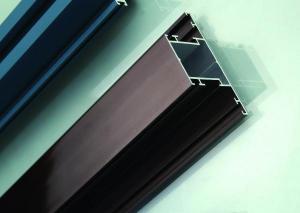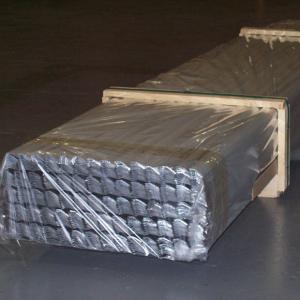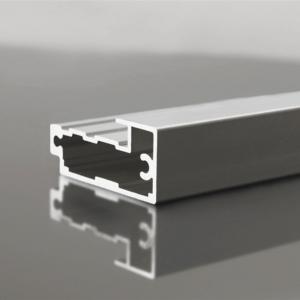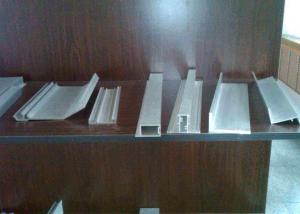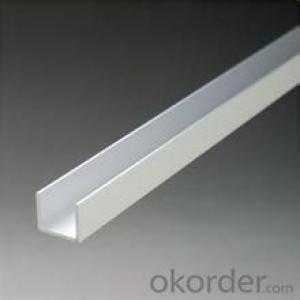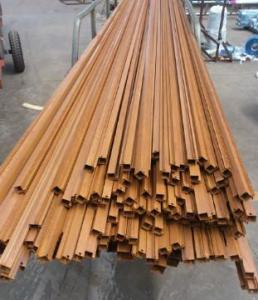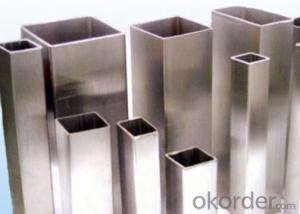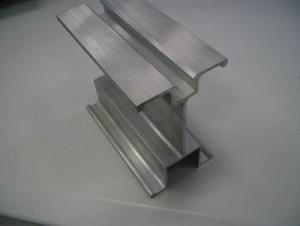Aluminium Alloy Tube Profile used on Furnitures
- Loading Port:
- Shanghai
- Payment Terms:
- TT OR LC
- Min Order Qty:
- 5 m.t.
- Supply Capability:
- 500 m.t./month
OKorder Service Pledge
OKorder Financial Service
You Might Also Like
Products Description
Item | Aluminium Pipe / Aluminum Tube |
Standard | ASTM B209-04,B210M-05,B234M-04,B241-02,B221M-05a, AISI, SUS, EN573-3-2003, JISH4000-2006,H4080-2006, H4040-2006, DIN, GB/T3190-2008,3880.1-2006, 6893-2000,3191-1998,4437.1-2000, ASME,ISO3522-1984 |
ISO ASTM JIS Standard | 1000series:1435,1050,1060,1070,1080,1100,etc |
2000series:2011,2014,2017,2024,etc | |
3000series:3002,3003,3104,3204,3030,etc | |
| 5000series:5005,5025,5052,5040,5056,5083,etc | |
6000series:6101,6003,6061,6063,6020,6201,6262,6082,etc | |
7000series:7003,7005,7050,7075,etc | |
GB Standard | 1A80,1070A,1100,2A01,2014A,1017A,5050,5154A,5083,6161, 7A01,7A52,7075, |
Surface | mill,polished,bright,hair line,brush |
Thickness | 0.5-150mm |
Diameter | 2-2500mm |
Length | 1-12m ,or as required |
Application | 1. Lighting,solar reflector plate. 2.architectural appearance, interior decoration:ceiling,metope, furniture,cabinets and so on. 3.elevator,nameplate, bags. 4.automotive interior and exterior decoration. 5. Interior decoration: such as photo frame. 6.household appliances, refrigerator, microwave oven, audio equipment. 7. Aerospace and military aspects. 8, machinery parts processing, mold manufacturing . 9. chemical/insulation pipeline coating. |
Payment terms | T/T, L/C, and Western Union |
Price terms | FOB CIF CFR CNF etc |
Delivery time | Normally according to the order quantity |
- Q:How strong are aluminum profiles?
- Aluminum profiles are known for their strength and durability. They have a high strength-to-weight ratio, making them excellent for various applications. The strength of aluminum profiles can vary depending on factors such as the alloy used, the tempering process, and the specific profile design. Generally, aluminum profiles can withstand significant loads and pressures, making them suitable for a wide range of structural and industrial purposes. Additionally, aluminum profiles have excellent resistance to corrosion, which further enhances their strength and longevity. Overall, aluminum profiles are considered to be strong and reliable materials, offering excellent performance in various applications.
- Q:Can aluminum profiles be used in modular construction systems?
- Modular construction systems readily employ aluminum profiles due to their lightweight and durable nature. These profiles, constructed from aluminum, are highly suitable for modular construction purposes. Not only do they confer structural stability, but they can also be easily manipulated into different shapes and sizes to meet specific design needs. Additionally, aluminum profiles exhibit exceptional resistance to corrosion, rendering them highly suitable for both indoor and outdoor applications. Furthermore, their recyclability makes them a sustainable choice for modular construction systems, aligning with environmentally-friendly practices. On the whole, aluminum profiles present a plethora of advantages in terms of strength, flexibility, and sustainability, thus solidifying their popularity within the world of modular construction.
- Q:Can aluminum profiles be used for automotive roof racks or cargo systems?
- Yes, aluminum profiles can be used for automotive roof racks or cargo systems. Aluminum is a lightweight yet strong material that is commonly used in the automotive industry. It offers good corrosion resistance and can withstand various weather conditions, making it suitable for outdoor applications such as roof racks and cargo systems. Additionally, aluminum profiles can be easily customized and designed to meet specific requirements, making them a popular choice for these applications.
- Q:What screws do you use for aluminum alloy profiles?
- Aluminum alloy profiles are generally: with electric nails, self tapping screws fixed. Do not use ordinary screws, tools should also be chosen.Self tapping screws are used for non metal or soft metal, without backing holes and tapping; self tapping screws are pointed, so that they can be self tapping; ordinary screws are flat head, and the thickness is the same.Classification of aluminium alloy sections by use:Construction aluminum profiles (divided into two types of doors and windows and curtain wall).Radiator aluminum profile.General industrial aluminum: mainly used in the manufacture of industrial production, such as automation equipment, covering the skeleton and the custom mold machinery and equipment according to their own requirements, such as assembly line conveyor belt, hoisting machine, glue machine, testing equipment, shelves and so on, electronic machinery industry and clean room with.Aluminum alloy profile of railway vehicle structure: mainly used for rail vehicle body manufacturing.
- Q:Can aluminum profiles be used in roofing systems?
- Yes, aluminum profiles can be used in roofing systems. Aluminum is a lightweight and durable material that is resistant to corrosion, making it an ideal choice for roofing applications. Aluminum profiles can be used to create various roofing components, such as gutters, downspouts, and flashing, which help to channel water away from the roof and prevent leaks. Additionally, aluminum profiles can be easily fabricated and customized to fit the specific requirements of a roofing system. Overall, aluminum profiles offer numerous advantages for roofing systems, including strength, durability, and resistance to weathering, making them a popular choice for both residential and commercial roofing projects.
- Q:Can aluminum profiles be an alternative to wood in construction?
- Yes, aluminum profiles can certainly be a viable alternative to wood in construction. Aluminum is lightweight, durable, and resistant to rust and corrosion, making it an excellent choice for various construction applications. Additionally, aluminum profiles offer flexibility in design, are easy to install, and require minimal maintenance. They can be used for structural components, windows, doors, cladding, and other construction elements, providing a sustainable and cost-effective solution compared to wood.
- Q:Can aluminum profiles be used in HVAC systems?
- Yes, aluminum profiles can be used in HVAC systems. Aluminum is a lightweight and durable material that is commonly used in various industries, including HVAC. It offers several advantages such as excellent thermal conductivity, corrosion resistance, and easy formability. Aluminum profiles are commonly used in HVAC systems for components such as ductwork, air vents, and heat exchangers. Ductwork made from aluminum profiles is lightweight, easy to install, and resistant to corrosion, making it a popular choice for HVAC installations. Aluminum air vents provide efficient airflow and can be easily adjusted to control the direction and volume of air. Aluminum heat exchangers are also widely used in HVAC systems. The excellent thermal conductivity of aluminum allows for efficient heat transfer, making it ideal for applications where heat exchange is necessary. Additionally, aluminum's corrosion resistance ensures the longevity and reliability of heat exchangers, even in harsh environments. Overall, aluminum profiles are a suitable choice for HVAC systems due to their lightweight nature, durability, thermal conductivity, and corrosion resistance. They contribute to the overall efficiency and performance of HVAC systems while ensuring long-lasting functionality.
- Q:Are there any limitations on the length of aluminum profiles?
- Yes, there are limitations on the length of aluminum profiles. The length of aluminum profiles is typically limited by factors such as the manufacturing process, transportation constraints, and practicality. In terms of manufacturing, aluminum profiles are usually extruded or rolled, and the length is limited by the equipment and capabilities of the manufacturer. Extrusion presses and rolling mills have certain size limitations, which determine the maximum length of aluminum profiles that can be produced. Transportation constraints also play a role in limiting the length of aluminum profiles. Longer profiles may be difficult to transport due to logistical challenges, such as the size of trucks or shipping containers. Moreover, the risk of damage or deformation during transportation increases with longer profiles. Practicality is another factor that imposes limitations on the length of aluminum profiles. Longer profiles may become less rigid and more prone to sagging or bending under their own weight, making them less suitable for certain applications. Additionally, longer profiles may be more difficult to handle and install, requiring specialized equipment and techniques. While there are limitations on the length of aluminum profiles, manufacturers can often produce profiles in various lengths to meet specific project requirements. However, it is important to consider these limitations and consult with the manufacturer to determine the feasibility of producing longer profiles if needed.
- Q:Can aluminum profiles be used in the production of laboratory equipment?
- Yes, aluminum profiles can be used in the production of laboratory equipment. Aluminum is a lightweight and durable material that is resistant to corrosion, making it suitable for various laboratory applications. It can be easily machined and is commonly used in the construction of lab benches, shelves, frames, and other equipment components.
- Q:What are the noise insulation properties of aluminum profiles?
- Aluminum profiles have relatively poor noise insulation properties compared to other materials commonly used for soundproofing, such as wood or PVC. Aluminum is a lightweight and thin material, which allows sound waves to easily pass through it. It does not provide a significant barrier to block or absorb sound, resulting in minimal noise reduction. However, certain aluminum profiles can be designed with additional features to enhance their noise insulation capabilities, such as incorporating insulating materials or using thicker profiles. These modifications can improve the soundproofing performance to some extent, but it still may not be as effective as other materials specifically designed for noise insulation.
1. Manufacturer Overview |
|
|---|---|
| Location | |
| Year Established | |
| Annual Output Value | |
| Main Markets | |
| Company Certifications | |
2. Manufacturer Certificates |
|
|---|---|
| a) Certification Name | |
| Range | |
| Reference | |
| Validity Period | |
3. Manufacturer Capability |
|
|---|---|
| a)Trade Capacity | |
| Nearest Port | |
| Export Percentage | |
| No.of Employees in Trade Department | |
| Language Spoken: | |
| b)Factory Information | |
| Factory Size: | |
| No. of Production Lines | |
| Contract Manufacturing | |
| Product Price Range | |
Send your message to us
Aluminium Alloy Tube Profile used on Furnitures
- Loading Port:
- Shanghai
- Payment Terms:
- TT OR LC
- Min Order Qty:
- 5 m.t.
- Supply Capability:
- 500 m.t./month
OKorder Service Pledge
OKorder Financial Service
Similar products
New products
Hot products
Related keywords
